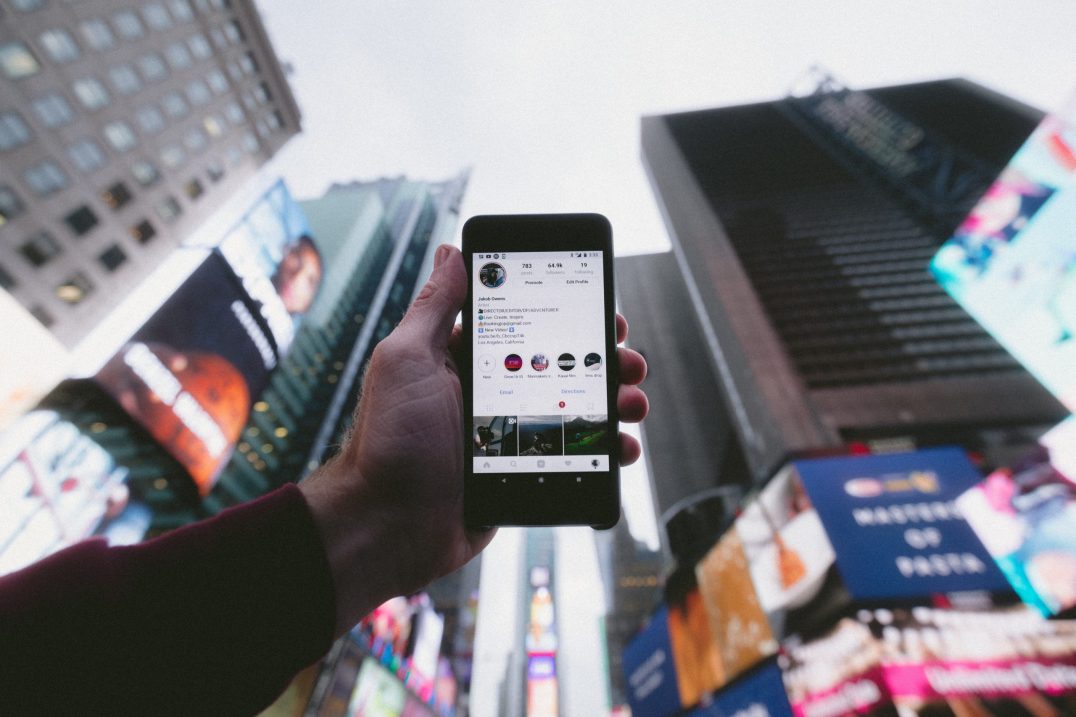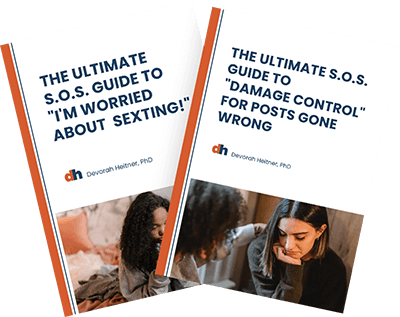Instagram / Meta Doesn’t Care About Our Kids
Does Instagram hurt kids? Is social media bad for kids? My answer… It depends. Based on my own research as well as other published research, we know that connecting online with friends via texting, games or social apps can be positive for many kids.
On the other hand, most of us who study this stuff believe social media can turn up the dial on self-doubt, feelings of exclusion, or worries about physical appearance. Social media is not necessarily the sole cause of these feelings for kids. Still, new revelations add to parents’ concerns about how Instagram effects young people’s mental health.
Recently, a whistleblower from inside Facebook has exposed some very concerning internal research about Instagram (which they own), showing that as far back as 2019 if not earlier, they recognized that Instagram was particularly toxic and harmful for some teenage girls.
Many of the parents and educators in my network feel like these internal documents, first shared in the Wall Street Journal, confirms what they already long suspected about kids’ experiences with Instagram. The current Senate hearing is asking Facebook to respond to these revelations by clarifying what they knew and what they did about it. Anyone who cares about kids and teens and their welfare should pay attention to what comes out of this hearing. Will Facebook make sweeping changes to be sure their platform doesn’t harm children? Don’t hold your breath for a huge transformation.
Despite all of this, I don’t recommend that parents shut kids off from all social media until they are 18. Teaching kids the ropes of social media is going to be more effective than preaching abstinence-only. As tempting as it is to just try to keep kids off of social media, for many kids the pleasures and possibilities will outweigh the risks and harms.
But we need to mentor, support, and listen to our kids
Teens themselves are telling researchers that their experiences on Instagram lead to eating disorders, suicidal ideation and other threats to their health and well-being. Kids who already have a risk factor are especially vulnerable. Many children and adolescents are at heightened mental health risk since the pandemic, so we can consider almost all kids to have at least one risk factor right now.
Kids are exposed to negative messages like unrealistic and unhealthy body “ideals” before they even get to social media. If social media exacerbates that exposure, and if a teen, tween or child is already vulnerable after a setback (like say being home for a year, or a negative series of social interactions, or just being a teenager in these times) that could mean that social media, if used in certain ways, can put them at risk.
Social media algorithms can harm a child’s mental health by sending harmful and misleading content to users based on even one or two clicks in that direction. For example, when researchers created accounts as 15 year old girls and liked “a single post from a sportswear brand about dieting” and followed one other dieting-related account and these actions were enough to crowd her “explore” feed with with “content relating to weight loss journeys and tips, exercise and body sculpting.”
The researchers noted the images in her explore feed started to feature “noticeably slim, and in some cases seemingly edited/distorted body shapes.”
We can ask ourselves, why do some kids keep going back to spaces and sites that hurt them, even if they realize, at some level, that it hurts? Of course many adults do the same thing. Social sites have features (such as the ‘like button) that make them hard to quit. And we are social animals–we go where our friends are.
All of us, adults and teens, need to cultivate self-knowledge and self-regulation to identify when our use of apps may be hurting more than they are helping. But the apps also need to rethink algorithms that send toxic content to users – especially children.
And yes, kids under thirteen aren’t supposed to use apps like Instagram, and waiting til you don’t have to lie about your age to use an app is certainly the best practice. As anyone who has been thirteen knows, thirteen is by no means the age of complete reason and waiting til that age alone is not enough to protect kids from harmful experiences.
Take your own emotional temperature
As parents, we can work hard to get our kids to recognize that something might be making them feel worse, not better. Talking about our own experiences with social comparison can help.
Teachers, scouting leaders, athletic coaches and other adults that have influence with young people need to take every opportunity to check in about these issues with adolescents and share strategies to help teens and tweens learn the best strategies. I like to remind kids to be sure they are running their devices and not letting their devices run them.
That means unfollowing accounts that spew harmful images and ideas, and regularly reality-checking what they see online with other sources including as much in-person social interaction as life in a pandemic allows. We should strive to give teens agency in how they use these apps, while doing our job to prepare them for the risks inherent in them.
Instagram is not Snapchat: Every app is different
Getting to know apps one at a time and focusing on the culture and features of that app and how it makes you feel is important. Facebook’s own research found the culture of Instagram was especially risky for teen girl’s body-image while Tik Tok and SnapChat have some factors that mitigate (somewhat) that particular risk.
On the other hand, Tik Tok can serve up images promoting alcohol and drugs to minors, and has other content we might want our kids to avoid. And Snapchat streaks--ongoing volleys of communication that you lose if you skip a day— can stress kids out and make it hard to unplug. Every app has its own special perks and it’s own pitfalls.
We can encourage our children to skip the “explore” feature on Instagram and focus on what their actual friends are posting. We can remind them to unfollow peers who only post things that make them feel bad and not to post things that will hurt other people.
For adults and kids, it is good to remember that if spending time on a certain app makes you feel bad, try to allocate your time accordingly, or experiment with taking a break from the app by taking it off your most frequently used device.
The teens I talk with say that interest-based social groups in spaces like Discord are less stressful than social media in general because it is about connection and affiliation and not about performing a perfect version of yourself. Yet even these spaces can have drama and conflict. There is no perfect place to hang out on the Internet!
7 ways parents can help if they’re worried that Instagram & social media are harming kids
- We can MENTOR and not simply MONITOR. We can discuss our own experiences with social comparison. Remind kids that we’re only seeing a sliver of other people’s lives. That all of us are greater and more complex than the sum of our posts
- Remind kids they can CURATE content and feeds for protection of their mental health. We can encourage our children to be smart about the algorithm, follow positive posters and add contacts mindfully (and don’t just focus on the numbers!)
- Remember and model good HABITS like choosing certain times of day to use social apps carefully and only scroll when they are feeling emotionally grounded. Remember to unplug and get enough sleep. Keeping devices out of bedrooms at night can help.
- Remind kids to REALITY CHECK what they see. Remember people are using this as a space to perform. Check sources on news stories and updates. Talk about what you are seeing with others.
- Encourage kids to PRIORITIZE face to face contact, hobbies they love, and work that meets their life goals over social media time.
- SHARE thoughtfully and encourage kids to do the same. Be intentional about being part of the solution.
- Teach good BOUNDARIES You can model great boundaries by remembering to check with your kids before sharing images of them or news about them. Save super personal news for trusted friends.
Given that Instagram and other social media companies have shown us that profits and growth are more important to them than the safety and well being of users, we need to focus on harm-reduction and helping kids learn to navigate these spaces in ways that benefit them or, at minimum, does the least amount of harm while preserving access to the social opportunities for connection that bring us to these apps in the first place.

